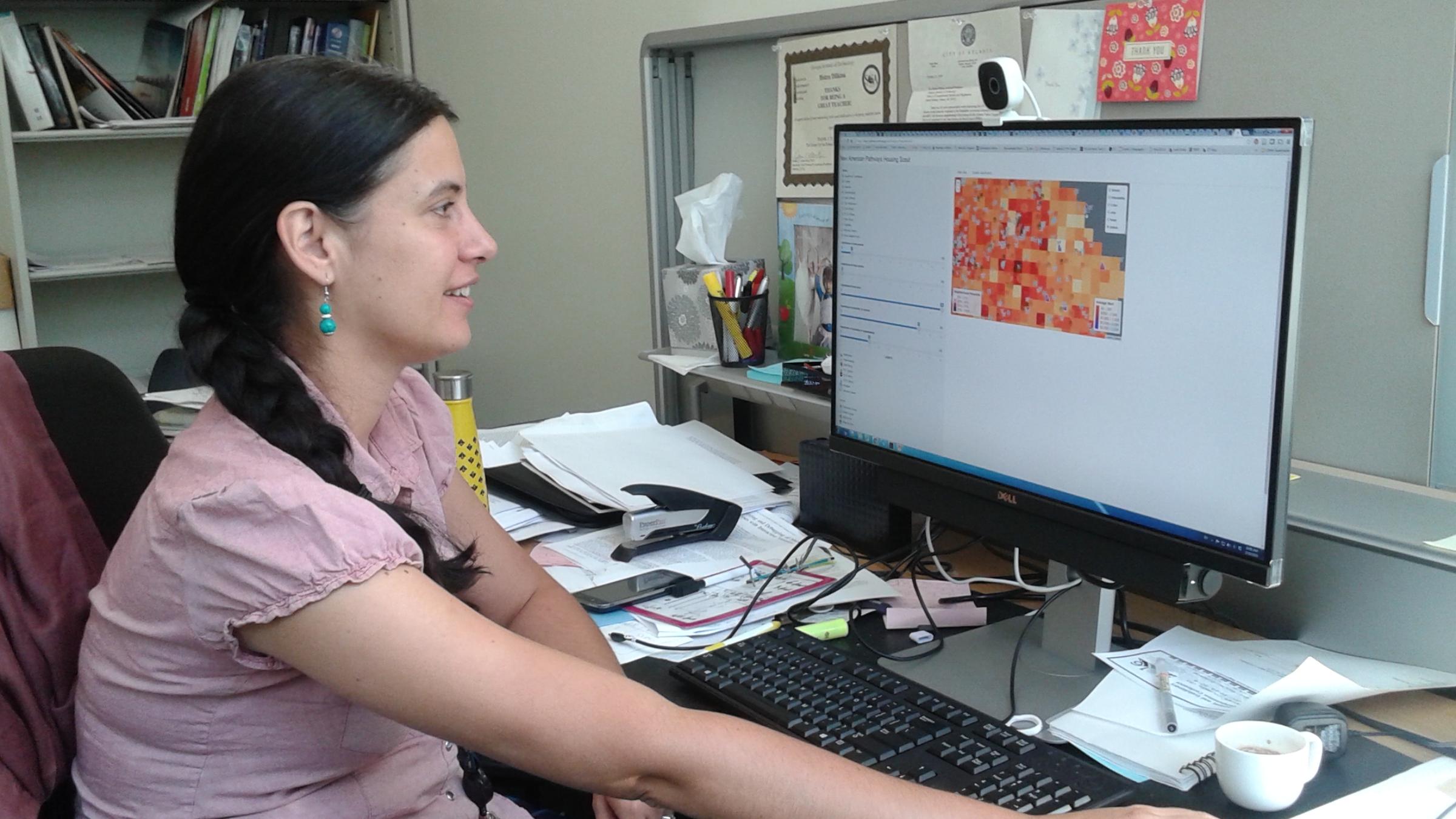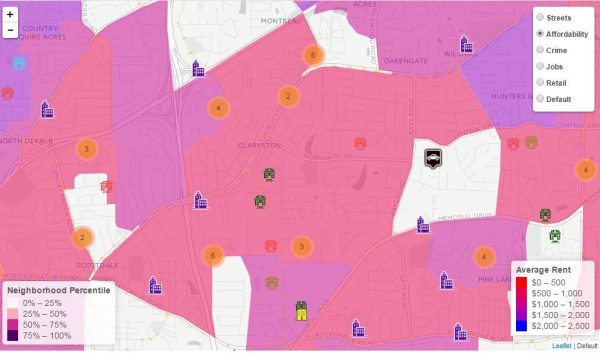Web Tool To Help Resettle Ga. Refugees In New Communities

Georgia Tech Computer Science assistant professor Bistra Dilkina worked with three student interns during this summer’s Data Science for Social Good internship program. She helped students develop an online tool for New American Pathways.
TASNIM SHAMMA / WABE
It can take a while for refugees to get the paperwork they need to get a driver’s license or be able to afford a car. So they need easy access to public transit, supermarkets, schools and low rents. So the city of Clarkston, just outside Interstate-285 in DeKalb County, is an ideal location.
But Clarkston is just 1.4 square miles and it’s running out of space as refugees decide they actually want to stay there.
The resettlement agency New American Pathways helps place more than 500 refugees in metro Atlanta each year. Many end up in Clarkston.
This summer, the group worked with data scientists at Georgia Tech to build an online tool to help it identify other cities to resettle these refugees.
Data Visualization Tool
Georgia Tech Computational Science and Engineering assistant professor Bistra Dilkina shows off how an interactive map on her computer filters metro Atlanta data on public transit, supermarkets, hospitals, English learning centers and crime data.

CREDIT NEW AMERICAN PATHWAYS
She shows off an area on a map highlighted in red, showing off lower rents.
Dilkina advised three fellows with the Data Science for Social Good internship program in creating this data visualization tool for New American Pathways.
In six weeks, the three interns created an online tool that anyone can tailor for what a refugee and their family might need in metro Atlanta.
“Users can slide how important they think a particular factor is, and the area most recommended for their purpose is going to change according to that,” said Unaiza Ahsan, a Ph.D student at Georgia Tech who worked on the project. “We had sliders for job access, retail access, access to schools and then we had a lot of options. So it really depends on how you select those criteria to get an optimal location.”
New American Pathways said the tool is something they use every day: for example, to find an apartment for a family who needs schools to be close by, but doesn’t place high priority on access to retail.
“It’s such a tricky question that it’s not actually obvious where those good locations might be,” Dilkina said.
Clarkston is still the hot spot for refugees, but New American Pathways is now looking at places near Clarkston, like the city of Tucker.
“The thing to remember about Clarkston is, it has become a really vibrant, international community. Twenty years ago, Clarkston didn’t look that,” said Paidea Mixon, CEO of New American Pathways.
Mixon said supportive school districts and city leaders can also be welcoming to refugees and create their own Clarkston. But for now, options for low rents and public transit access in metro Atlanta is quite limited.
The hope is that the tool will prove to be more useful in the future, if the metro Atlanta expands public transit and adds affordable housing.
“What this is enabling us to do is really save a lot of time, because we can identify what are the key areas that fit our needs and then focus on just going and looking in those areas,” Mixon said.
Mixon said the tool is especially valuable because her group usually gets only a two-week notice before a new family arrives to the United States.








